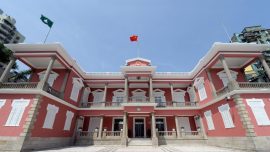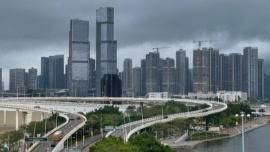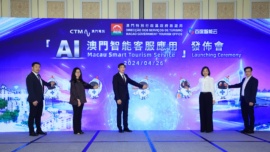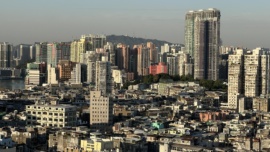The government put out a call, and the six gaming concessionaires promptly responded with a range of proposals aimed at advancing their corporate social responsibility initiatives.
Macau Business | April 2023 | Special Report | ESG/CSR Spotlight
“Regarding the regulatory environment, the new gaming law mandates that gaming concessionaires should undertake various CSR initiatives, such as supporting local SMEs, guaranteeing labour rights and interests, and promoting various activities for the betterment of Macau,” Ryan Ho, lecturer at Macau Polytechnic University, stated to Macau Business.
In fact, this is not new in Macau. As Ho underlines, “Historically, gaming concessionaires have been engaging in CSR, which dates back to STDM’s monopoly period. Concessionaires are under legal and contractual obligations to bring about positive changes and community prosperity.”
In the tender that took place at the end of 2022, the government required candidates to state, among the criteria for awarding concessions, the social responsibilities they intend to assume (it was the seventh and final criterion).
It is this fact that underlies Ryan Ho’s statement to Macau Business or the statement by Stephan Rothlin, director of the Macau Ricci Institute, at the end of last year to our sister publication, Macau News Agency: the ongoing tender is a “unique opportunity” to push forward the CSR agenda in the SAR and “these major players have a huge responsibility as stewards in Macau society.”
Despite this, and because the weight of each criterion in the attribution of concessions is not known, it is not possible to make a direct attribution between causes and effects, which led specialists such as António Lobo Vilela to denounce that “the lack of prior definition of the ‘weighting coefficient and the calculation mechanism’ makes it possible to arbitrarily reorder the criteria, valuing or devaluing the relative importance of each one of them,” or Jorge Costa Oliveira, asking for the publication, on the government website or elsewhere, “of the substantiated report underlying the adjudication of the six concessions,” which, if it does not happen, causes “unnecessary opacity.”

“As the gaming industry is a key economic pillar in Macau, concessionaires have to gain ongoing acceptance and support from the local residents” – Ryan Ho
“In addition to the gaming rights awarded by the Macau government, concessionaires have to earn the ‘social license to operate’ through various CSR efforts,” adds Ryan Ho. “As the gaming industry is a key economic pillar in Macau, concessionaires have to gain ongoing acceptance and support from the local residents.”
Moreover, the lecturer at Macau Polytechnic University explained to Macau Business, “employees and consumers generally prefer to align themselves with companies that contribute to the community where they operate. As the city’s largest employers, concessionaires with CSR practices can boost employee engagement in the workplace.”
Several studies show that “when employees work for socially responsible companies, they generally have pride in the companies and are enthusiastic about their work. Likewise, consumers are becoming more CSR-conscious. CSR actions can increase consumer loyalty, as people nowadays have a preference for patronising companies with a good reputation in community development.”
In the last Forum on Macao Integrated Tourism and Leisure Enterprises and Corporate Social Responsibility, the Director of the Centre for Gaming and Tourism Studies of Macao Polytechnic University, Wang Changbin, pointed out that the six concessionaires have a significant influence as the largest business owners in Macau. In Wang Changbin’s view, over the last 20 years, these companies “have made great efforts to fulfil their social responsibilities, with notable results.”
“CSR was one of the important marketing tools for Macau gaming companies nowadays,” adds Professor Jian Ming Luo, Faculty of International Tourism and Management, City University of Macau, recalling that responsible gambling, one of the most visible elements of CSR, had been part of the Chief Executive policy since 2007.
US vs. Macau
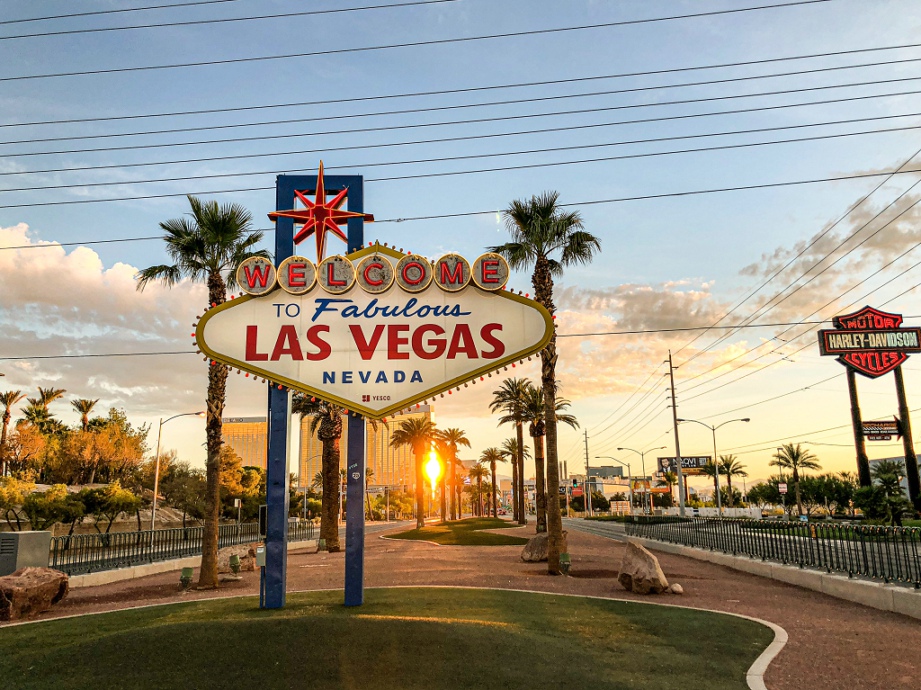
Four researchers, two from Mainland China and two from the United States, have studied the overall current status of CSR initiatives implemented by the casino industry, comparing CSR practices of casinos between the US and Macau “and found to provide a better understanding of cultural influences on their CSR initiatives.”
Findings show an emphasis on three primary stakeholders (community, employees and customers) by both groups while some differences exist, such as a greater emphasis on environmental matters and team-based employee focus by Macau casinos: “US casino operators may need to implement and disclose more expansive information on environmental practices and programmes with specific goals and achievements,” they stated.
“By reporting more comprehensive information on environmental issues in CSR reports, casino companies will likely cultivate a better relationship with local governments and environmental activists,” the document reads.
“Moreover, US casino companies may place more emphasis on some material information about money laundering and political spending and ensure that they are shared in their CSR reports,” Seoki Lee, Xueting Zhai, Minwoo Lee and Qiuju Luo wrote.






